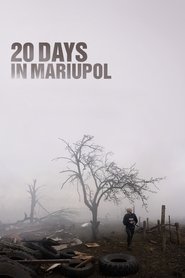Seattle International Film Festival 2023: Film #30
"Wars don't start with explosions, they start with silence."
A pattern is established relatively early on in this documentary: we see the filmmaker's extended footage from Mariupol for a particular day, followed by brief clips of that very same footage being used by various news networks in the West. It is as if it was the footage's very appearance on cable TV that authenticates the image in some undefinable way. Jean Baudrillard would certainly have something to say about that, and it doesn't help that much of the film looks like Call of Duty cutscenes, as well as that the creation of 20 Days… itself plays a prominent role in the film. This, along with the high-definition and stable images, brings to mind Susan Sontag's book-length essay, Regarding the Pain of Others (2003):
Those who stress the evidentiary punch of image-making by cameras have to finesse the question of the subjectivity of the image-maker. For the photography of atrocity, people want the weight of witnessing without the taint of artistry, which is equated with insincerity or mere contrivance. Pictures of hellish events seem more authentic when they don’t have the look that comes from being ‘properly’ lighted and composed, because the photographer either is an amateur or—just as serviceable—has adopted one of several familiar anti-art styles.
My inability to help anyone suffering in this film (as well as my unease with my role as spectator or voyeur) comes out in a kind of gallows humour at times, such as when we see a CrossFit gym being used as an air-raid shelter, although later I realise that the effect of seeing a CrossFit gym is also that this is happening in Europe and not in some faraway, exoticised land. But this is an incredibly sobering documentary at times, too, so my thoughts may also be a way of my brain neither willing nor able to really grapple with what it is seeing.
Of all the scenes, however, it was the birth of an (initially unresponsive) newborn that got to me most in the end. This was a potent-yet-problematic scene of the film to include as it captures the irresolvable tension between the genuinely affecting nature of 20 Days…, its potentially emotionally-manipulative dimension, the film being yet another example of the innately exploitative angle of the documentary form, and the 'actual truth' about what is happening on the ground in Ukraine.

